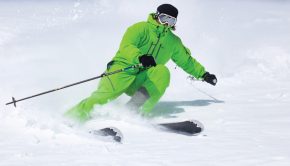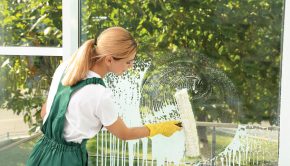Eco-Fireplace Tips
Best Ways to Enjoy Greener Indoor and Outdoor Fires
Our inclination to position ourselves near fire is a year-round lure nationwide. Yet, the traditional ingredient in both indoor fireplaces in the north and outdoor fire pits in the south should give shivers to the eco-minded. In addition to causing considerable air pollution, wood smoke contains carbon monoxide, nitrogen oxides and fine particulates that can aggravate asthma, allergies and other health conditions.
Eco-friendly firelogs—many made of recycled biomass products like compressed wood sawdust, ground nutshells and other ingredients—provide low-emission and petroleum-free alternatives to cordwood. According to GreenAmerica.org, the U.S. Environmental Protection Agency recommends manufactured logs over wood to cut air pollutants. Major manufacturers noted by ApartmentTherapy.com include Java, which uses coffee grounds; Energy Log briquettes made from recycled mill waste; and TerraCycle, ShredMaster Ltd. and CleanFlame, all of which use recycled and repurposed cardboard. In addition to producing greater heat, some of these logs even produce a natural crackling sound without throwing sparks.
Inserts—basically a stove that fits into existing fireplaces—provide a genuine fireside feeling, but with green benefits. An EPA-certified stove or insert is built to burn cleaner and more efficiently, dramatically reducing fine particle emissions and pollution over older models. While a propane gas stove insert burns even cleaner and is easier to operate, it uses nonrenewable fuel. Consider wood pellet models that burn ultra-compressed wood and biomass of olive, corn and cherry pits.
Outdoor steel fire pits that can burn firelogs have grown popular in warmer regions, and equipment manufacturers have responded. Tripods suspend swivel and free-standing grills over the pit for direct cooking or to hold cast iron kettles. Special outdoor tables also afford a gathering spot around friendly flames. Avoid gas and electric models as eco-no-nos.
If real wood is a must, be selective. Firewood that looks a little rough is more likely to come from over-mature trees of the kind that can be removed without affecting the health of its forest (WoodHeat.org). Product packages of Pioneer Processors firewood attest that it “never uses endangered wood species and always purchases from well-managed forests.”
<












